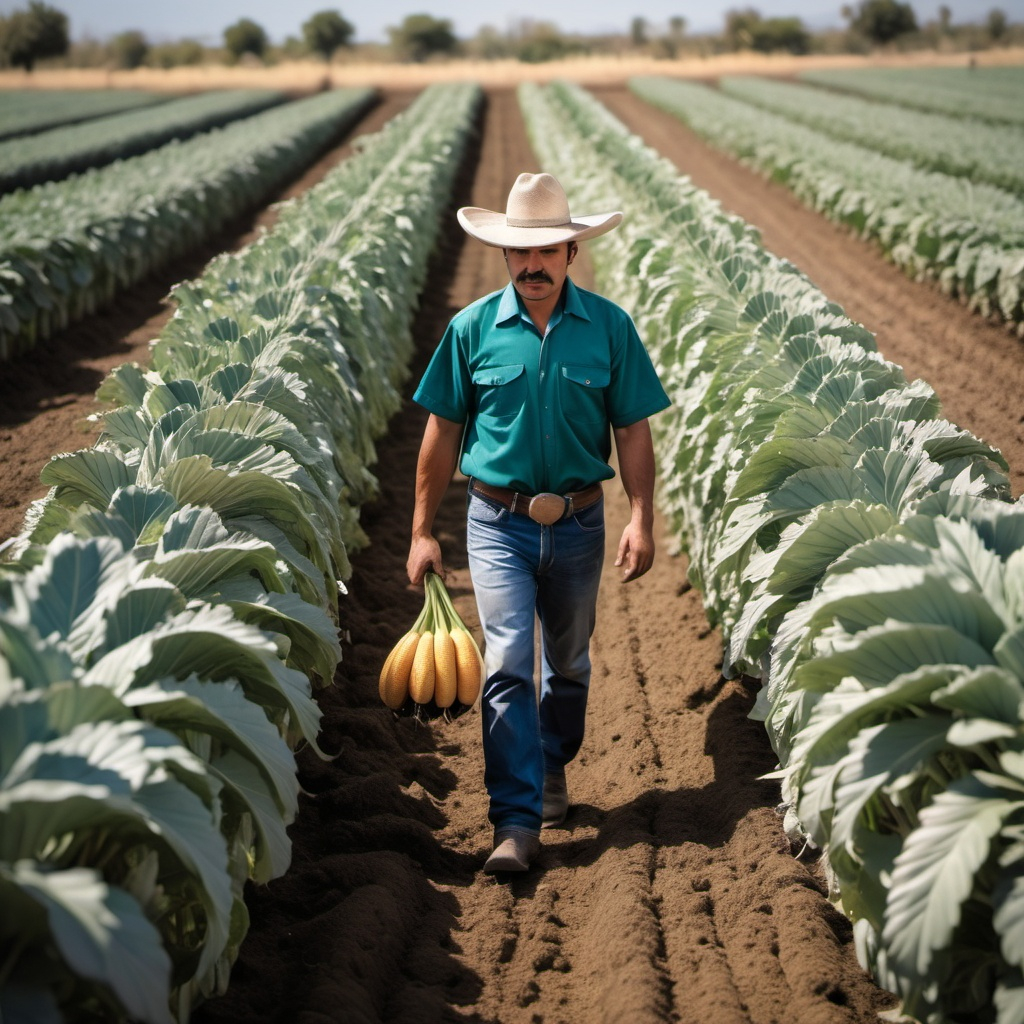
Mexico’s agricultural landscape is heavily influenced by its diverse geography and climate. The country spans various topographies, including coastal plains, mountains, and plateaus. This geographical diversity allows Mexico to cultivate a wide variety of crops, from tropical fruits in the lowlands to wheat and maize in the temperate highlands. Climate regions in Mexico range from arid deserts in the north to tropical rainforests in the south, each supporting different types of agriculture.
Main Crops and Agricultural Products
Mexico is one of the world’s largest producers of several staple crops. Corn, known as maize, is central to Mexican agriculture and cuisine. Other major crops include beans, wheat, sorghum, and barley. In tropical regions, fruits such as bananas, avocados, and mangos are widely grown. Mexico is also the leading exporter of avocados globally. Additionally, the country has a strong livestock industry, producing beef, pork, poultry, and dairy products.
The Role of Small-Scale Farming
Small-scale farming plays a vital role in Mexico’s agriculture, especially in rural areas. Many farmers cultivate small plots of land, often using traditional methods passed down through generations. These farmers grow food both for local consumption and for sale in domestic markets. Maize, beans, and squash are often grown together in milpa systems, which help preserve soil fertility and biodiversity. However, small-scale farmers face challenges such as limited access to technology, credit, and market opportunities.
Export-Oriented Agriculture
Mexico is also known for its export-oriented agriculture, particularly in the northern and central regions where large-scale farms produce crops primarily for international markets. The United States is the largest buyer of Mexican agricultural products, with exports including tomatoes, avocados, strawberries, and bell peppers. Mexico’s agricultural exports have grown significantly due to trade agreements like NAFTA (now USMCA), which have opened up markets and increased foreign investment in the sector.
Challenges in Mexican Agriculture
Despite the sector’s importance, Mexican agriculture faces several challenges. Water scarcity, particularly in the northern regions, has been a long-standing issue. Poor irrigation infrastructure exacerbates the problem, leading to inefficient water use. Climate change is another growing concern, with shifting weather patterns affecting crop yields and productivity. Additionally, rural poverty remains a major issue, as many small-scale farmers struggle to compete with large, export-oriented agribusinesses.
Sustainable Agricultural Practices
In recent years, there has been a push towards more sustainable agricultural practices in Mexico. Agroecology, organic farming, and conservation agriculture are gaining popularity as farmers seek to protect natural resources and improve productivity. These methods help to reduce the environmental impact of farming, improve soil health, and promote biodiversity. Government programs and non-governmental organizations are also working to support small-scale farmers in adopting sustainable practices to increase food security and resilience to climate change.
Government Support and Agricultural Policies
The Mexican government has implemented various policies and programs to support the agricultural sector. These initiatives aim to improve rural development, increase productivity, and promote exports. Subsidies for seeds, fertilizers, and machinery help farmers modernize their practices, while agricultural research centers focus on improving crop yields and resilience. However, critics argue that more needs to be done to ensure equitable access to these resources, especially for small-scale farmers in remote areas.